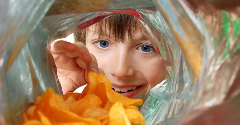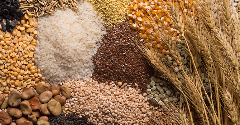News
How does honey compare to sugar?
27 Jun 2018Sugar use is down and honey use is up as manufacturers look for natural sweetening alternatives – but does honey live up to the hype?

According to the European Commission, consumption of high sugar foods and drinks is contracting in Europe, down 1-2% across the EU over the past five years. It predicts a further decline of about 5.4% to 2030 as manufacturers cut sugar in their products in response to health concerns, and as consumers aim to reduce their own sugar consumption.
Meanwhile, many consumers see honey as a natural, healthier alternative to ordinary sugar. About 25% of the honey consumed in Europe is used as an ingredient in packaged foods and drinks, and although honey is not an innovative ingredient in itself, companies increasingly are innovating with honey in products like salty-sweet or spicy-sweet snacks, ready-to-drink teas and breakfast cereals. According to Eurostat figures, Germans consume more honey than any other European nation, at 23% of the total, while other big consumers include the UK, France, Spain and Poland. While honey consumption is strong across the continent, it is growing particularly rapidly in Ireland and many Eastern European countries, including Croatia, Latvia, Romania and Estonia.
Both sugar and honey qualify as added sugars in foods and drinks, and both can contribute to obesity and dental caries. However, honey is often touted as a source of trace minerals and – with its lower glycaemic index – as a potentially better choice for those with diabetes or pre-diabetes. Although the energy in honey may be released a little more slowly than the energy in sugar, it needs to be treated with the same caution as other sugars, according to specialist advice from organisations including Diabetes UK and Diabetes Ireland.
Like sucrose (ordinary sugar), honey is composed of glucose and fructose. These sugars in sucrose are bound together, but they exist as free sugars in honey, making it taste sweeter. This means some consumers may use less of it, perhaps negating honey’s slightly higher calorie content.
However, the honey varieties that spike blood glucose more slowly tend to be higher in fructose, and that in turn is unlikely to be beneficial, whether or not someone has diabetes. While glucose can be used by nearly every cell in the body for energy, fructose is broken down only in the liver, and emerging evidence suggests it may be more easily converted to fat.
As for the trace minerals and antioxidants in honey, the values are so low that honey cannot be considered a source of nutrients. There is about 11 mg of potassium in a tablespoon of honey, for example, while recommended daily consumption is 3,500 mg.
Even though honey is far from a nutritional powerhouse, it still has benefits for manufacturers.
From a functional perspective, honey can be used instead of sugar in many baked items such as bread and cereals where it contributes similar attributes like colour, extended shelf life, structure development and browning, and its stickiness can be useful for binding snack bars. Its distinctive flavour can be a challenge in some products – but it can also be played up as a desirable characteristic. Aside from real honey, honey flavours can also be used to add the health halo of honey to foods and drinks. Doehler, for example, recommends its honey extracts and flavours to add the “fine taste notes of honey” to enhance fruity and spicy products.
Food manufacturers using honey must also take care that their supply is genuine, as honey is one of the top targets for food fraud, according to a 2016 EU report. It found that about 20% of honey sold in the EU was suspected to contain foreign sugars, either in the form of sugar syrup or cheaper multifloral honey being sold as single source honey. Companies such as Eurofins and Campden BRI provide authenticity testing services that can ensure honey is genuine.
The bottom line is that honey and sugar are very similar from a nutritional perspective, but consumers’ perception of honey as a natural alternative to sugar is generally positive. What’s more, honey can bring interesting flavours and textures to a wide range of products.
Related news

Is the price of a sustainable and healthy diet… unsustainable?
4 Mar 2025
Healthier foods are more than twice as expensive per calorie as less healthy foods, with healthier food increasing in price at twice the rate in the past two years.
Read more
Does calorie labelling lead to reduced consumption?
27 Feb 2025
Calorie labelling of food products leads to a small, but consistent, reduction in the number of calories consumed, a study suggests.
Read more
Brands, retailers, and countries remain divided over Nutri-Score labels
30 Jan 2025
Europe's supermarkets and manufacturers are far from aligned over a standarised approach to nutrition labelling. Some welcome the non-mandatory Nutri-Score labels with open arms, while others have “considerable concerns”.
Read more
EU Parliament passes stricter packaging rules
20 Jan 2025
The European Parliament voted to approve updates to the packaging and packaging waste regulation, including enforceable re-use targets, limits on certain single-use packaging types, and restrictions on the use of PFAS “forever chemicals”.
Read more
Louis Drefyus Company powers on in plant-based with BASF ingredients acquisition
17 Jan 2025
BASF has agreed to sell its food and health performance ingredients business to Louis Dreyfus Company (LDC).
Read more
Major Belgian retailers promise standardised, reusable packaging at scale
16 Jan 2025
Albert Heijn, Aldi, Carrefour, Colruyt, Delhaize, and Lidl have launched a new reusable packaging coalition that aims to accelerate the use of reusable packaging, starting with mushrooms.
Read more
Kraft Heinz, Mondelēz, Coca-Cola, and Nestlé accused of marketing ‘addictive’ UPFs at children
15 Jan 2025
Major food manufacturers have been hit with a first-of-its-kind lawsuit alleging that they specifically engineer their ultra-processed foods (UPFs) to be addictive, and that they market the products towards children.
Read more
FDA reviews red food colour additive, Red No.3
9 Jan 2025
Amid considerations to tighten regulations around artificial ingredients, the US Food and Drug Administration (FDA) is exploring a potential ban on particular type of red food dye.
Read more
Sperri builds investment momentum with US expansion plans
7 Jan 2025
Hailed as Canada’s first organic and allergen-free plant-based meal replacement drink, food-as-medicine brand Sperri progresses its efforts to enter the US market.
Read more
Is it time for a global definition of whole grain?
30 Dec 2024
Amid a lack of harmonisation, the European Food Information Council (EUFIC) is calling for a global definition of the term whole grain to end consumer confusion.
Read more